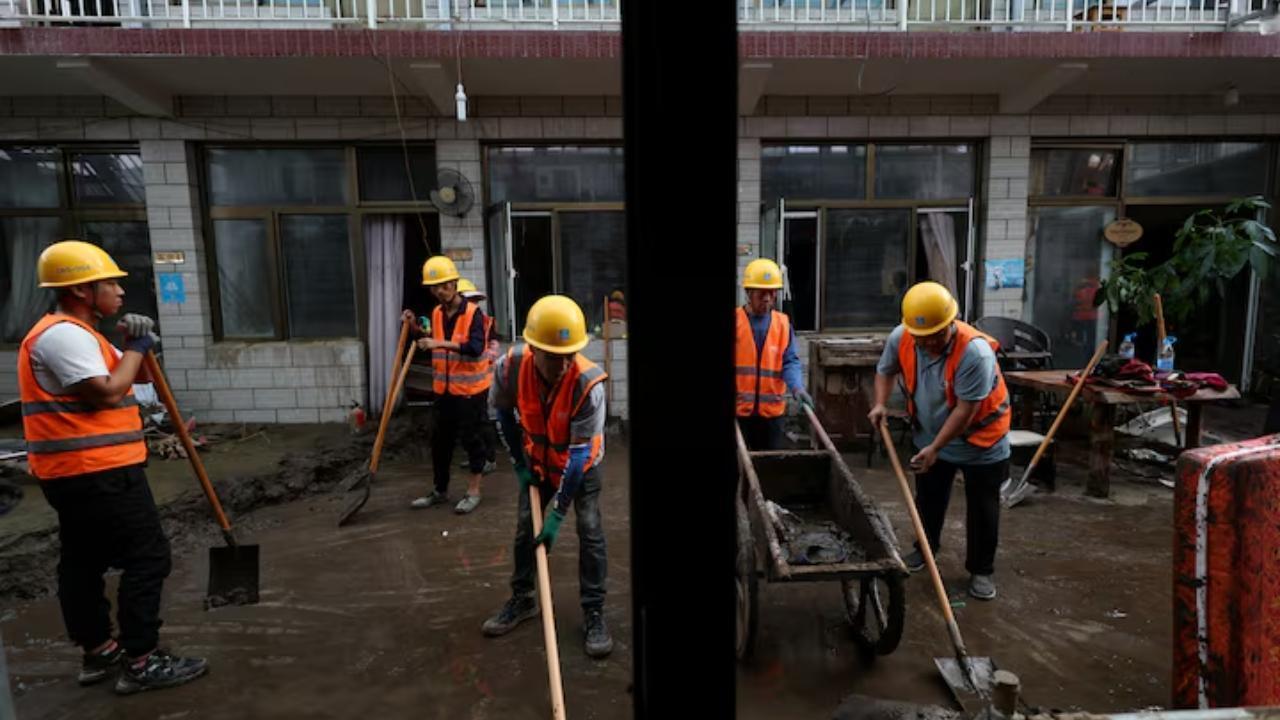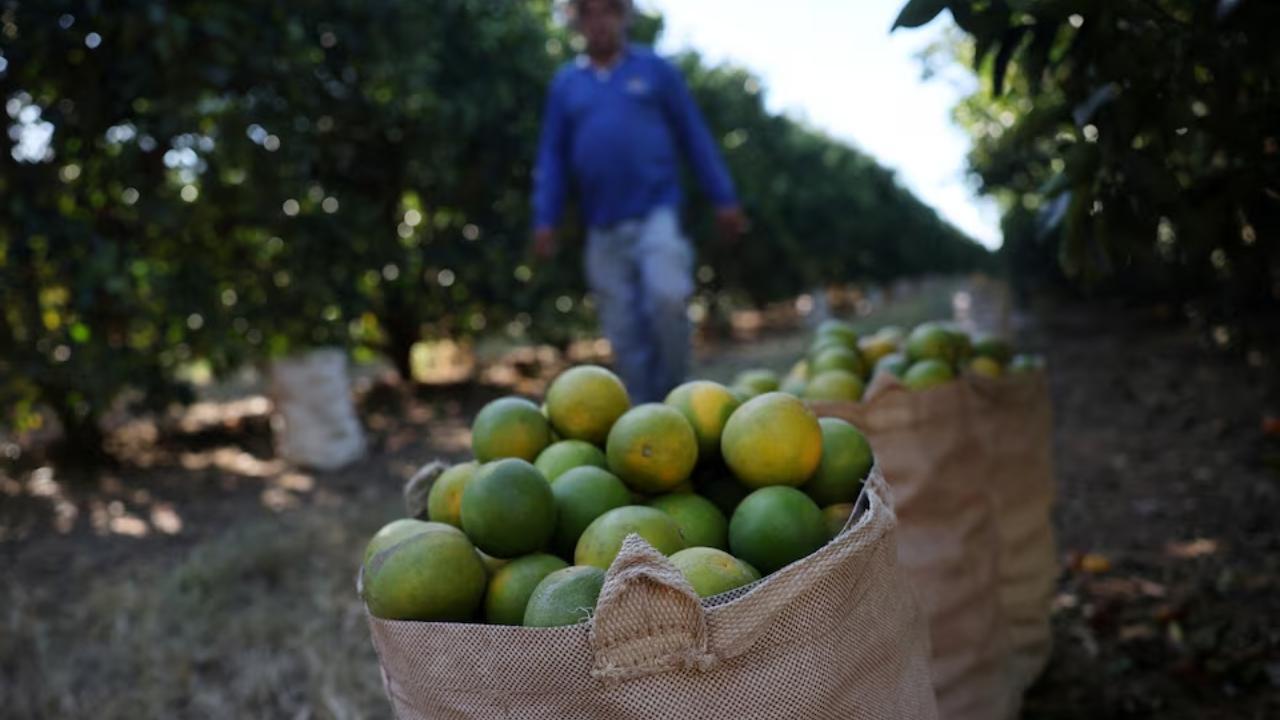
Post by : Monika
Photo: Reuters
In the Middle East, every word from leaders carries heavy weight, especially when it comes to conflicts like the one between Israel and Hamas. Recently, Qatar and Israel faced a heated exchange after Israeli Prime Minister Benjamin Netanyahu accused Qatar of helping Hamas by hosting its political office in Doha.
Qatar did not stay silent. Instead, it strongly condemned Netanyahu’s remarks, calling them reckless, misleading, and harmful to the peace process.
This new clash shows just how fragile peace talks in the region are and how easily diplomatic trust can break down. Let us look at what was said, how Qatar responded, why the issue matters, and what it could mean for the future of peace efforts in Gaza and beyond.
Netanyahu’s Harsh Accusations
Prime Minister Benjamin Netanyahu, who has long taken a hard line against Hamas, made public remarks about Qatar. He accused the Gulf state of giving Hamas leaders a safe place to stay and even financial support.
Netanyahu’s main points were:
Qatar’s Immediate Response
Qatar’s Foreign Ministry quickly rejected Netanyahu’s claims. Officials said his remarks were “reckless,” dangerous, and disrespectful of Qatar’s sovereignty—the right of a country to decide what happens within its own borders.
Qatar explained that the Hamas office in Doha was not something they set up secretly. Instead, it was established years ago as part of international agreements to help with peace talks. Both Israel and the United States knew about this office and, at times, supported its existence because it gave Hamas a place for dialogue outside of Gaza.
In other words, Qatar said: “We are not protecting Hamas—we are hosting this office to help the peace process, and everyone knows that.”
Why Qatar Hosts a Hamas Office
To many outside the region, it may sound surprising that Hamas has an office in Qatar. But this office has an important role.
Mediation role: Qatar often acts as a middleman between Israel, Hamas, Egypt, and the United States. Hosting Hamas officials allows them to communicate during crises.
Peace talks: Over the years, Qatar has helped arrange ceasefire deals, prisoner exchanges, and humanitarian agreements. Many of these discussions have taken place in Doha.
International approval: The U.S. and even Israel in the past accepted this arrangement, knowing it helped maintain channels of communication.
Qatar believes that without such offices, talks would be nearly impossible because Israel does not directly engage with Hamas leaders inside Gaza.
Why Netanyahu’s Words Angered Qatar
The Wider Peace Efforts
At the time of Netanyahu’s remarks, peace efforts in the Middle East were already facing big challenges. Gaza has suffered heavy destruction from ongoing conflict, and humanitarian needs are rising. Countries like Egypt, Qatar, and the United States have been trying to arrange a ceasefire between Israel and Hamas.
The Role of the United States
The United States has often supported Qatar’s mediation role. Washington knows that while Qatar has contact with Hamas, it does not mean Doha supports the group’s military activities. Instead, it provides a neutral space for dialogue.
Qatar also hosts a major U.S. military base, making it an important American ally in the Gulf. This close relationship means that Washington will likely be careful in how it reacts to Netanyahu’s accusations.
For the U.S., the concern is that if Netanyahu and Qatar clash openly, it may become harder to push for a ceasefire or peace deal.
Regional Reactions
Other Arab nations have also watched this dispute closely. Many countries in the region value Qatar’s role in mediation. They know that without Qatar, dialogue with Hamas would be extremely limited.
At the same time, some governments are careful not to appear as if they support Hamas. Still, most Arab states agree that Netanyahu’s public threats against Qatar are not helpful for peace.
Qatar’s Warning
Why This Moment Matters
Looking Ahead
For now, Qatar is standing firm. It says it will continue to play its role in mediation and will not be intimidated by Netanyahu’s threats. Israel, meanwhile, is signaling that it no longer trusts Qatar.
The coming weeks will show whether other international powers, especially the United States, can ease the tension and keep Qatar involved in peace talks. If not, the gap between Israel and Hamas could grow even wider, leading to more violence in Gaza and more suffering for civilians.
The war of words between Qatar and Netanyahu highlights the fragile state of Middle East diplomacy. While Netanyahu accuses Qatar of sheltering Hamas, Qatar insists it is only hosting an office for peace negotiations—a role both the U.S. and Israel once supported.
By calling Netanyahu’s remarks “reckless,” Qatar is sending a message: peace cannot be built on threats and blame. Instead, countries must work together, respect each other’s roles, and focus on stopping the violence that has already harmed so many lives.
Whether this clash becomes just another diplomatic quarrel or a turning point in regional politics will depend on how both sides, and their allies, act in the days ahead.
Qatar Netanyahu conflict










Keto Diet and Mental Health: New Surprising Benefits Found
Discover how the keto diet reduces depression symptoms and enhances brain health. Learn about keto’s

China faces heavy losses from natural disasters in August
Natural disasters in China during August caused $2.8 billion in losses, affected over 10 million peo

Brazil to Propose New Forum for Climate and Trade Talks at COP30
Brazil plans to create a new international forum to discuss how climate policies impact trade, aimin

Brazil's Citrus Industry Hit Hard by Greening Disease
Nearly half of Brazil's citrus belt is affected by greening disease, leading to significant losses i

Sea Shepherd Removes Illegal Octopus Traps in Greece
Sea Shepherd volunteers in northern Greece have removed thousands of illegal octopus traps, rescuing

New Waterbomber to Fight Growing Wildfires Globally
De Havilland Canada's DHC 515 waterbomber, designed to combat increasing wildfires, has received glo